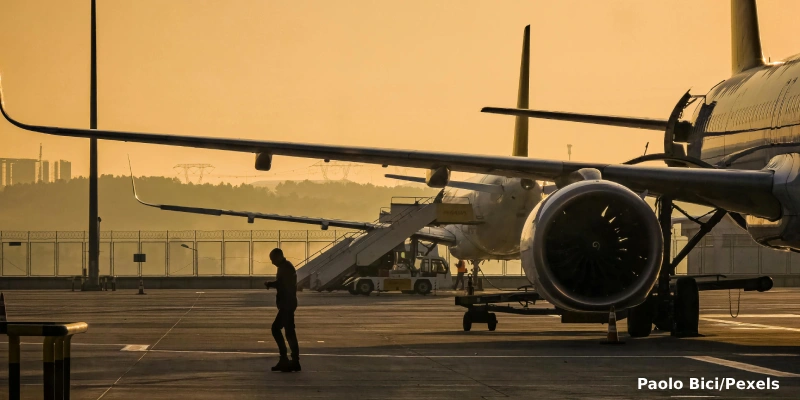Tensions between the United States and Mexico in the aviation sector have escalated following decisions by the Mexican government that, according to Washington, have severely impacted U.S. airlines. The Trump administration has announced potential retaliatory measures if Mexico does not reverse actions that include reducing flight slots and forcibly relocating cargo operations from Benito Juárez International Airport.
A Multifaceted Conflict
The U.S. Department of Transportation (DOT) accuses the Mexican government of violating a bilateral aviation agreement through two key decisions made in 2022 and 2023: restricting slots for passenger flights and ordering all cargo airlines to leave Benito Juárez International Airport and relocate to Felipe Ángeles International Airport (AIFA).
Secretary of Transportation Sean Duffy warned that if these concerns are not addressed, the DOT could deny new flight applications from Mexican airlines. Additionally, the DOT is considering revoking antitrust immunity for the joint agreement between Delta Air Lines and Aeroméxico.
Delta and Aeroméxico in the Crosshairs
Delta Air Lines cautioned that such a move would harm consumers, U.S. jobs, and cross-border competition. The airline stated that losing approval would significantly damage traffic between the two countries.
→ Mexico Allocates 134 Billion Pesos to Modernize 62 Airports
Aeroméxico, meanwhile, announced it is preparing a joint response with Delta to address the DOT’s orders in the coming days.
AIFA: Operating at Full Cargo Capacity
The argument from the administration of then-President Andrés Manuel López Obrador was that Benito Juárez Airport was already saturated and that AIFA could absorb the additional cargo. However, the reality has been different: AIFA is already operating at full cargo capacity and suffers from serious ground connectivity issues, making it unattractive for passenger flights.
The U.S. DOT was blunt: “By restricting slots and forcing cargo operations out of Benito Juárez Airport, Mexico has broken its commitment, distorted the market, and imposed millions in additional costs on U.S. companies.”
Impact on Safety and Competition
The Cargo Airline Association, representing major U.S. cargo operators, labeled the measure a threat to safety and a troubling precedent for how cargo airlines might be treated in other international markets in the future.
“This move not only disrupted critical operations but also created uncertainty about how safety emergencies would be handled going forward,” the association warned.
Ongoing Measures and Potential Sanctions
In addition to evaluating the revocation of antitrust immunity, the DOT has imposed new requirements: Mexican airlines must submit their U.S. flight itineraries by a late July deadline and seek prior approval for large-scale charter flights to or from U.S. territory.
Airlines such as Volaris and Viva Aerobus could be affected, though neither has issued public statements on the matter.
The DOT even warned that it could extend similar measures to European countries if it detects unjustified restrictions at their airports.
Mexico: A Key Destination
Mexico remains the most popular international destination for U.S. air travelers. However, these tensions could mark a turning point in bilateral aviation relations if a consensus is not reached soon.
The countdown is underway. Airlines and travelers on both sides of the border hope the conflict does not escalate into an open war of restrictions and retaliation.
Related Topics
Lufthansa Under Pressure: Pilots and Cabin Crew Call for Strikes This Thursday
Lufthansa City Airlines Opens Frankfurt Base and Accelerates European Short-Haul Offensive
Ryanair Redefines Maintenance Strategy: Signs Multi-Billion Dollar Deal with CFM to Internalize Engine MRO Starting in 2029
Air Europa and Plus Ultra Announce Resumption of Flights to Venezuela
Plataforma Informativa de Aviación Comercial con 13 años de trayectoria.
